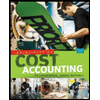
Barbara Wight is Chief Financial Officer at Taylor Guitars, an industry-leading guitar manufacturer whose instruments are played by leading musicians worldwide. She directs all financial, information technology and legal affairs on behalf of the company and oversees various aspects of operations management, multinational manufacturing, acquisitions, and international compliance.
1 What are the primary factors considered by management when selecting an
Taylor uses the FIFO methodology. GAAP does not require that our valuation methodology match the flow of our inventory; however, in our case, FIFO does closely approximate the actual physical flow of our goods. Our primary raw material is wood, and it must be aged and dried before we use it to build a guitar. Therefore, we are always using the oldest wood first.
In addition, our business is not as susceptible to inflation as other businesses might be. For example, the price of the wood we purchase is directly related to supply and demand at a given point in time, and the sales price of our finished guitars is relatively stable over time.
Therefore, LIFO would not necessarily provide us a sustainable, consistent tax advantage Taylor’s inventories (both finished goods and raw materials) are stated at
2 Why would a business use more than one inventory valuation method for its inventory? Businesses may use more than one inventory valuation method if they have foreign operations because LIFO is not permitted under IFRS. So companies that use LIFO for U. S. operations would use FIFO for international units Businesses might also apply different methodologies to different types of inventory or different business segments For example, if a company’s different business segments have different underlying raw material market deliveries, it might want to use LIFO for materials subject to inflation and FIFO for materials whose pricing is stable or even in decline.
3 Describe the most common components included in the unit cost of inventory at Taylor. Taylor states inventories at standard cost based on the expected raw material costs, labor, and overhead. Our primary raw material is wood.
At the beginning of each year, Taylor determines how many total labor hours it will need to build the forecasted number of guitars and allocates overhead (and labor) to each guitar based on the calculated overhead and labor rate. The overhead rate times the number of labor hours per guitar equals overhead applied to each guitar unit. Taylor drives production based on a hybrid model; we build to order and to a sales
4 What are the most significant judgments employed in the decision to write inventory down to market when applying the lower-of-cost-or-market rule?
The most significant judgments are the replacement cost, expected selling price, cost of completion and/or disposal, and normal profit. After appropriately calculating these items, we apply the lower-of-cost-or-market rule. Another area that requires judgment is the determination of whether to calculate the lower-of-cost-or-market rule based on total inventory in question, the inventory category, or on an item-by-item basis. The latter is the most conservative approach.
Each quarter Taylor reviews inventory for slow-moving or obsolete items to establish an excess and obsolete (E&O) inventory reserve balance. Finished goods are typically not reserved against and written off. If a guitar model is deemed to be subnormal, or if it is determined that a model needs to be reengineered to improve the quality to the customer, we write off these specifically identified models.
5 Does Taylor use estimated inventory techniques for financial reporting? Why or why not? One estimated inventory technique is related to how we value our raw wood It is not practical (and nearly impossible) to accurately and consistently measure raw wood when it is brought in directly from the forest. So, we have a standard process for estimating the value, which has been accepted by our auditing firm.
Discussion Questions
- 1. Discuss why LIFO is not permitted under IFRS.
- 2. Although Taylor Guitars makes limited use of estimating inventory, describe some of the reasons why a company may elect to estimate ending inventory and whether it may report estimated inventory on external financial statements.
Want to see the full answer?
Check out a sample textbook solution
Chapter 10 Solutions
Intermediate Accounting
- Please provide the answer to this general accounting question with proper steps.arrow_forwardCan you provide the accurate answer to this financial accounting question using correct methods?arrow_forwardPlease provide the correct answer to this financial accounting problem using accurate calculations.arrow_forward
- Please explain how to solve this financial accounting question with valid financial principles.arrow_forwardI need help solving this financial accounting question with the proper methodology.arrow_forwardI need help with this general accounting question using the proper accounting approach.arrow_forward
- Please help me solve this general accounting problem with the correct financial process.arrow_forwardI need assistance with this financial accounting question using appropriate principles.arrow_forwardPlease explain the solution to this financial accounting problem with accurate principles.arrow_forward
- I am trying to find the accurate solution to this general accounting problem with appropriate explanations.arrow_forwardCan you explain the correct methodology to solve this general accounting problem?arrow_forwardPlease provide the answer to this general accounting question using the right approach.arrow_forward
 Cornerstones of Financial AccountingAccountingISBN:9781337690881Author:Jay Rich, Jeff JonesPublisher:Cengage LearningPrinciples of Accounting Volume 1AccountingISBN:9781947172685Author:OpenStaxPublisher:OpenStax College
Cornerstones of Financial AccountingAccountingISBN:9781337690881Author:Jay Rich, Jeff JonesPublisher:Cengage LearningPrinciples of Accounting Volume 1AccountingISBN:9781947172685Author:OpenStaxPublisher:OpenStax College Principles of Cost AccountingAccountingISBN:9781305087408Author:Edward J. Vanderbeck, Maria R. MitchellPublisher:Cengage Learning
Principles of Cost AccountingAccountingISBN:9781305087408Author:Edward J. Vanderbeck, Maria R. MitchellPublisher:Cengage Learning Intermediate Financial Management (MindTap Course...FinanceISBN:9781337395083Author:Eugene F. Brigham, Phillip R. DavesPublisher:Cengage Learning
Intermediate Financial Management (MindTap Course...FinanceISBN:9781337395083Author:Eugene F. Brigham, Phillip R. DavesPublisher:Cengage Learning Auditing: A Risk Based-Approach (MindTap Course L...AccountingISBN:9781337619455Author:Karla M Johnstone, Audrey A. Gramling, Larry E. RittenbergPublisher:Cengage Learning
Auditing: A Risk Based-Approach (MindTap Course L...AccountingISBN:9781337619455Author:Karla M Johnstone, Audrey A. Gramling, Larry E. RittenbergPublisher:Cengage Learning




